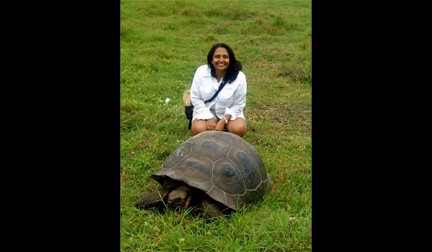
Neeti Bathala is on a mission to get South Jersey youth exposed to science early.

For Haddonfield resident and associate professor of ecology Neeti Bathala, her goal is simple: getting young people to realize anyone can become a scientist. Through her work at the University of the Arts in Philadelphia, and with the recent publication of her first children’s book “Moonlight Crab Count,” Bathala is trying to get young people out along the Delaware region to participate in scientific research.
Bathala said she felt drawn to science at an early age. In her youth, she always found herself outside, whether it was weeding in the family garden or taking a trip to the Shore. Her love of nature transformed into a love for science when a high school science teacher showed Bathala and her fellow students science wasn’t about knowledge in a classroom, but rather, it was experienced by going outside in nature.
“I realized how important it was to just be outside and get hands dirty,” Bathala said. “That really makes it meaningful.”
Through her research, teaching and writing, Bathala wants to make a similar impact. She said science has enabled her to live a vibrant life, from studying bottlenose dolphins in Greece to researching sea turtles in Costa Rica. Now, all of her efforts are directed toward making science accessible to young people so they, too, can experience the joys science has to offer.
Bathala said her mission began after speaking with some of her students at the University of the Arts. She said at an arts university surrounded by creative people, her students would tell her time and again that they didn’t think they could be scientists. With her course, she wanted to prove this notion wrong.
Each semester, Bathala sends her students to do citizen science projects. She said citizen-based science projects have the general public input data and provide scientific observations for scientists at universities. Bathala said she sent her students running around the city to identify urban birds.
The positive feedback Bathala received from her college students about her course was her inspiration to try to intervene earlier.
“A lot of them would say to me ‘I wish I had taken science when I was really young and learned how much fun it could be,’” Bathala said.
For that reason, Bathala decided to write a children’s book about a citizens’ science project someone of any age could do. “Moonlight Crab Count” tells the story of a young girl named Leena and her mother as they visit the beach to count horseshoe crabs. Bathala juxtaposes scientific data with storytelling, which she said is in stark contrast to the books of her own childhood.
She said the book was based, in part, off a particularly memorable experience during her time as a graduate student at Duke University. She said through the Duke Marine Lab, she and her fellow classmates went to the beach one night and waded into the ocean to collect data on horseshoe crabs. She said horseshoe crab blood plays a vital role in the medical community because the creature’s copper-based blood is used to test for contamination.
Wading in the water that night is an experience seared into her memory, and Bathala said she hopes her book will inspire kids in South Jersey to go to the Delaware Bay and have that experience for themselves, knowing they’re simultaneously having fun but doing scientific research.
Bathala said she wants to bring her work to Haddonfield schools in the fall and has expressed interest in doing a reading for young students. She said with the Jersey Shore in such close proximity, the horseshoe crab project is something Haddonfield youth could certainly get involved in.
An active member of Haddonfield’s Garden Club, Bathala has considered writing her next children’s book about the importance of pollinators. She said the book would discuss the importance of creating diversity in the garden. She has also given some thought to writing a book about sand dunes and their importance to barrier communities.
Bathala said kids are exposed to science between the ages of 3 and 8, then by the time they get to high school they’re not going avoiding the science class that could get them into the field.
“It’s about getting them excited when they’re young about nature and the environment,” Bathala said.
Bathala’s book is available for purchase on Amazon and in Barnes and Noble.









